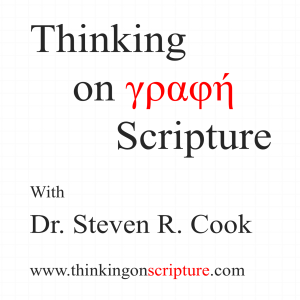
Sunday Oct 06, 2019
Habakkuk 1:1-17
The opening sentence identifies Habakkuk as God’s prophet (Hab 1:1). Habakkuk is troubled by the violence and injustice he sees in Judah and brings his frustrations directly to God, who is the only one who can really correct the situation. But it seems to the prophet that God is not answering his prayers; therefore, he asks, “How long, O LORD, will I call for help, and You will not hear? I cry out to You, ‘Violence!’ Yet You do not save” (Hab 1:2). Habakkuk knew his people were in a covenant relationship with God and wondered why God had not acted to deal with the violence within the country (Lev 26; Deu 28). He asked God, “Why do You make me see iniquity, and cause me to look on wickedness? Yes, destruction and violence are before me; strife exists and contention arises” (Hab 1:3). The wicked were disregarding God, “Therefore the law is ignored and justice is never upheld. For the wicked surround the righteous; therefore, justice comes out perverted” (Hab 1:4). The wicked are those who ignore God and His commands and live as they please. The righteous are those who understand and obey God’s laws. It seemed to Habakkuk that the wicked had imprisoned the righteous and that civil justice was being perverted. Job (Job 19:1-7), Asaph (Psa 73:1-28), and Jeremiah (Jer 20:7-12) also questioned God when faced with suffering, especially when the wicked seemed to get away with violence while the righteous agonized. God answered Habakkuk’s prayer with news he did not expect to hear and was challenged to believe (Hab 1:5). God was going to raise up the Chaldeans, a fierce and violent people, to discipline the sinning Judahites (Hab 1:6-11). This judgment was consistent with the curses set forth in the Mosaic Law (Deu 28:25, 36, 47-52). God had used the Babylonians to defeat the Assyrians in 612 B.C. (Nah 3:1-4), and He would now use them to discipline Judah. Having heard God’s answer, Habakkuk replied (Hab 1:12-17). The prophet opens his prayer with the truth that his covenant-keeping God is eternal and holy; therefore, His covenant will endure, sin will be addressed, and a remnant will survive (Hab 1:12). But then he raises his concern about God’s character and actions, saying, “Your eyes are too pure to approve evil, and You can not look on wickedness with favor. Why do You look with favor on those who deal treacherously? Why are You silent when the wicked swallow up those more righteous than they?” (Hab 1:13). The Babylonians, comparatively, were more violent than the Judahites, so it naturally came as a shock to Habakkuk that God would use these people to discipline Judah. How could a holy and righteous God use people more wicked than Judah to accomplish His will? The reality was that Judah was held to a higher standard than the Gentile nations, because they were in a covenant relationship with God and possessed His Word as a guide to moral righteousness. It demonstrates the principle that the one to whom much is given, much is required. Habakkuk then compared Judah to fish in the sea and the Babylonians as fishermen who catch them with their hooks and nets (Hab 1:14-15). He further comments that the Babylonians were guilty of worshipping the objects that brought them wealth (Hab 1:16), and wondered how long they’d continue (Hab 1:17). Afterward, Habakkuk stationed himself on his “guard post” in anticipation of God’s reply (Hab 2:1).
No comments yet. Be the first to say something!